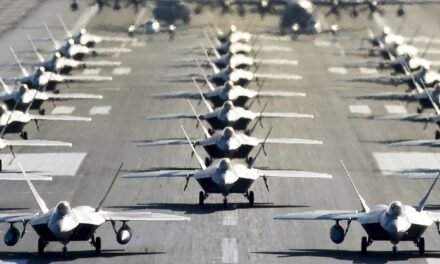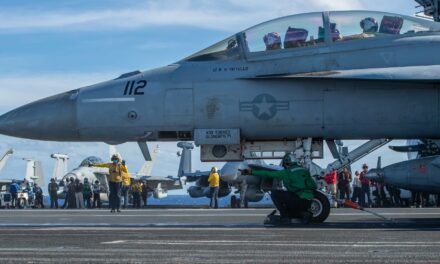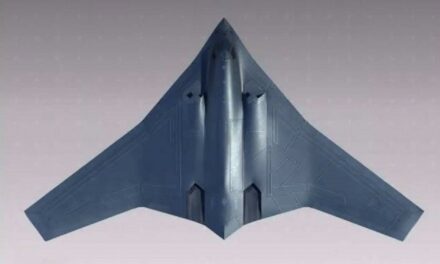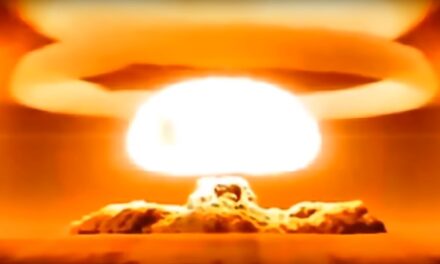We support our Publishers and Content Creators. You can view this story on their website by CLICKING HERE.
Key Points: Speculation about a Chinese invasion of Taiwan by 2027 overlooks key realities. A blockade of Taiwan, leveraging China’s massive navy and air force, is a more likely scenario than a high-risk amphibious assault.
-While China’s military-industrial capacity is formidable, its forces lack combat experience. The U.S., alongside regional allies like Japan, South Korea, and Australia, has significant military advantages, particularly in experience and coordination.
-To deter Chinese aggression, the U.S. should prioritize naval and air force investments, refocus defense spending on missile-capable ships and bombers, and advocate for nuclear arms control agreements with Beijing. A potential Taiwan blockade remains the most urgent concern.
Will China Blockade Taiwan Before 2027? Here’s What Experts Predict
I am often asked by the media and on podcasts if China will invade or attack Taiwan in some fashion by 2027. I tell them that the most ambitious tactic that China would do would be to execute a blockade around Taiwan to cripple it economically. The Chinese have the ships – the largest navy in the world – and three aircraft carriers to surround the island. It would also use its air force to enforce a no-fly zone.
But Let’s Tap the Brakes On Speculation
China prefers this action to an all-out kinetic and dynamic attack across the strait. The United States would not intervene in a blockade but would intervene in an amphibious attack. However, an invasion of Taiwan is too much of a gamble for China. This would be a swift action, and the Chinese do nothing quickly. They also do not have any combat experience since their short invasion of Vietnam in 1979. They have watched the invasion of Ukraine by the Russians and have reconsidered an attack on Taiwan.
It’s About U.S. Allies
One thing that I remind people is that the United States has many more allies than China in the Indo-Pacific. Americans can depend on Japan, South Korea, Singapore, and Australia – not to mention the Philippines, Thailand, Indonesia, and Vietnam. China has a superior navy compared to all the allies, but a concerted effort among U.S. friends in the Indo-Pacific would keep the Chinese from kinetically attacking Taiwan. An attack of Taiwan will not happen anytime soon, mark my words.
Don’t Forget About the Nuclear Option
China has nuclear weapons, and that is a more significant concern. I have always called for the re-positioning of American tactical nuclear weapons with allies such as Australia to deter the Chinese. I would also like to see arms control agreements with China for the strategic ICBMs– encouraging Beijing to be a signatory of an amended version of the New START Treaty to limit nuclear weapons. There is no arms control mechanism in place, and this takes U.S. leadership to get it done.
American force posture in terms of the U.S. Navy and Air Force in the Indo-Pacific is improving but it is not quite where it needs to be for full deterrence. China has long-range carrier-killing missiles that would affect the U.S. Navy’s ability to operate in all areas of the Taiwan Strait and the South and East China Seas. This means that the Americans would depend on stand-off missile launches from surface vessels and submarines. These anti-ship missiles could take out several Chinese warships. The airplanes from carriers from the U.S. Navy would have to refuel to get within range of China.
The aircraft carrier USS Enterprise, right, the guided-missile destroyer USS Porter (DDG 78) and the guided-missile cruiser USS Vicksburg (CG 69) transit back to their homeport of Norfolk, Va. Enterprise, Porter and Vicksburg are returning from a deployment to the U.S. 5th Fleet area of responsibility, where the ship conducting maritime security operations, theater security cooperation efforts and support missions for Operation Enduring Freedom. (U.S. Navy photo by Mass Communication Specialist 3rd Class Jeff Atherton/Released).
The U.S. Can ‘Roll Them Up’
I have spoken to American naval fleet officers, and they say the U.S. Navy would “roll up” so many Chinese ships that Beijing would beg for a ceasefire. The U.S. military has ample combat experience, and this is enough to sometimes deter China. But China is the best shipbuilder in the world, and they continue to pump out ships. Their carrier force is concerning since the fourth carrier will be built by the end of the decade.
The future of security in the Indo-Pacific is that the U.S. Navy and Air Force must protect Taiwan at all costs. The various islands, rocks, and reefs that China has militarized with airstrips and other military infrastructure are a strength for China. The United States must continue to train with allies. I am against extensive training exercises with the South Koreans for a potential war with North Korea, as I favor diplomacy with the DPRK. I only favor diplomacy with China on nuclear weapons. Otherwise, I consider the Indo-Pacific the biggest challenge for the U.S. military.
Is China Over-rated Militarily?
On the defense side, Chinese pilots have never flown in real danger. Their airplanes are untested. The battle training they conduct is simulating attacks by flying aircraft into Taiwan’s Air Defense Identification Zone. They also conduct naval exercises, but this is not the same thing as real combat. American pilots flew combat missions for over 20 years during the War on Terror. To be sure, these bombing and missile runs were not in contested airspace – Americans had always established air dominance – but the United States became accustomed to high operational tempo and multiple sorties flown each day and week.
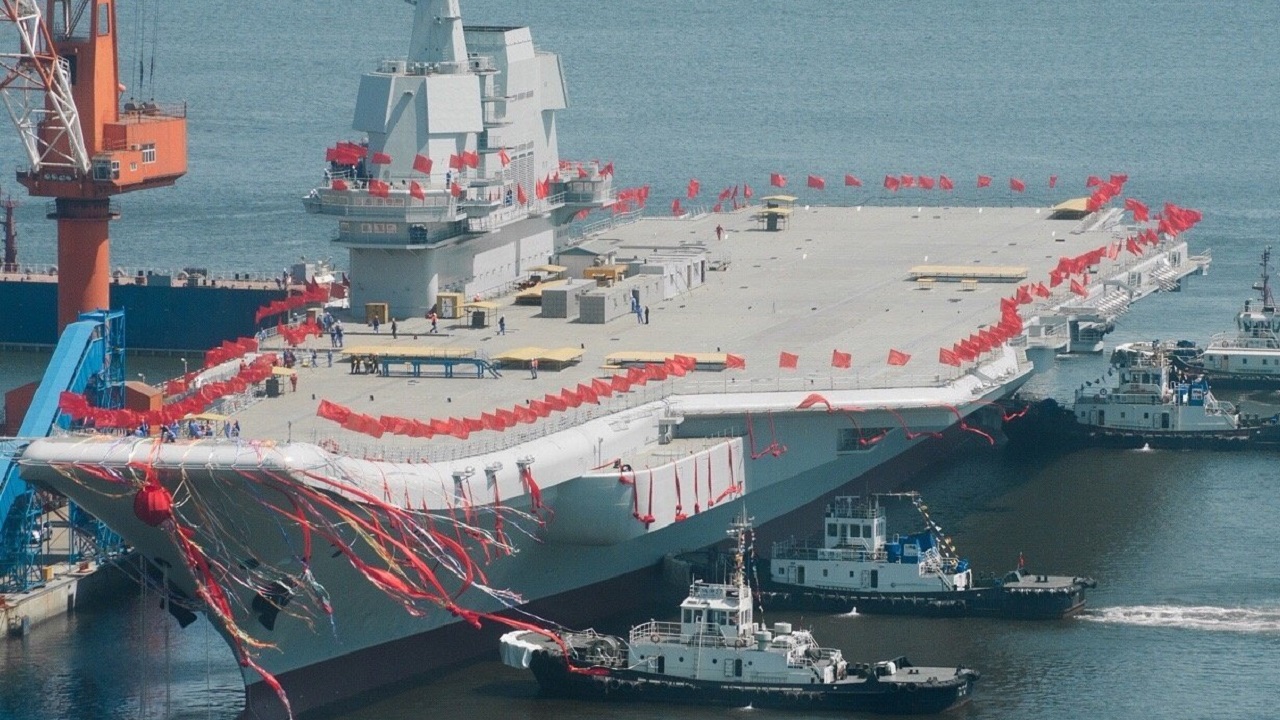
Fujian, China’s new aircraft carrier. Image Credit: Chinese Internet.
Thus, China may be over-rated militarily. The one thing that is strong about China is its defense industrial base. The Chinese are building ships and airplanes faster than the United States and certainly faster than Taiwan. China is willing to invest money and resources into its defense manufacturing efforts.
What Can America Do About China?
Defense spending in the United States should be focused on building new ships and submarines and executing the retirement of vessels that have lost their way, such as the Littoral Combat Ship. Money saved from the Littoral Combat Ship program could go to new guided missile cruisers and destroyers because the potential fight against China will be fought with anti-ship missiles. Hopefully, the U.S. will get the new B-21 Raider stealth bomber by the end of the decade. This great airplane would tilt the balance in favor of the United States. Otherwise, the Americans can use B-52s, B-1s, and B-2s as missile trucks to fire anti-ship missiles. Thus, a naval war with China would be short and decisive in favor of the United States and its allies. The United States should be most worried about Taiwan and a potential blockade before an all-out invasion in 2027.
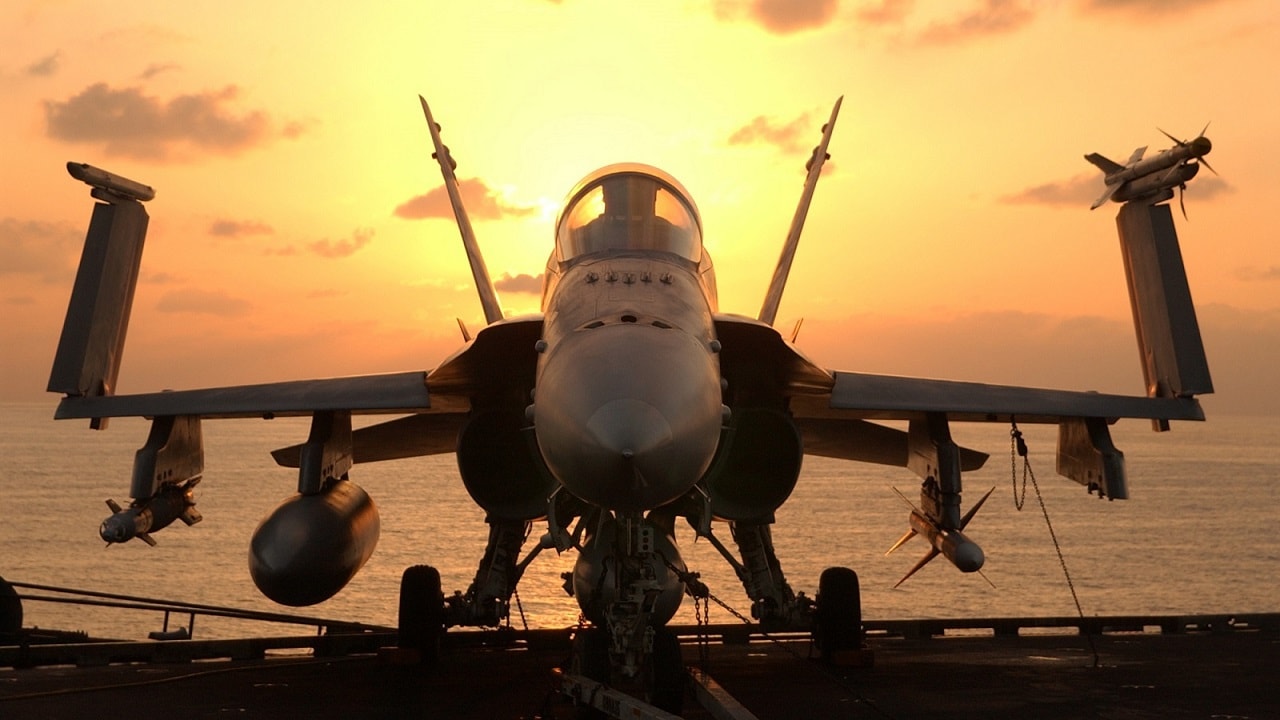
011218-N-9769P-047
At sea aboard USS John C. Stennis, December 18, 2001 – After an early morning round of flight operations, an F/A-18 Hornet awaits the next round of combat flight operations aboard the USS John C. Stennis (CVN 74). Stennis and her embarked Carrier Air Wing Nine (CVW-9) are supporting Operation Enduring Freedom. U.S. Navy photo by Photographer’s Mate 3rd Class Jayme Pastoric
About the Author: Dr. Brent M. Eastwood
Brent M. Eastwood, PhD, is the author of Don’t Turn Your Back On the World: a Conservative Foreign Policy and Humans, Machines, and Data: Future Trends in Warfare, plus two other books. Brent was the founder and CEO of a tech firm that predicted world events using artificial intelligence. He served as a legislative fellow for U.S. Senator Tim Scott and advised the senator on defense and foreign policy issues. He has taught at American University, George Washington University, and George Mason University. Brent is a former U.S. Army Infantry officer. He can be followed on X @BMEastwood.

 Conservative
Conservative  Search
Search Trending
Trending Current News
Current News 